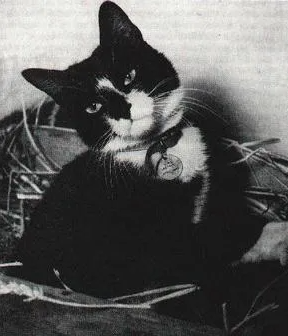For centuries, cats have been a vital part of life at sea. These furry shipmates weren’t just adorable companions; they served a critical purpose – keeping rodent populations in check and boosting morale for sailors on long voyages. As a result, ship cats have earned a rich and fascinating history, often accompanied by equally interesting names. This comprehensive guide delves into the world of ship cat names, exploring their origins, inspirations, and how to choose the purrfect moniker for your own feline sailor.

The Allure of the Ship’s Cat
Cats have a natural affinity for water, drawn to the rhythmic lapping of waves and the ever-changing scenery. Their keen senses of sight and smell also made them invaluable for spotting land and preventing outbreaks of disease-carrying rats and mice. Ship’s logs from the 16th century onwards document the presence of cats, highlighting their importance in maintaining a healthy and functional ship environment.
Beyond their practical benefits, ship cats offered emotional support to sailors facing the dangers and loneliness of long voyages. These furry companions provided a sense of comfort and companionship, a welcome distraction from the harsh realities of life at sea. The bond between sailors and their feline shipmates is a testament to the unique connection humans share with cats.
A History of Names: From Superstition to Tradition
The tradition of naming ship cats goes back centuries, with names often reflecting the unique culture and superstitions of seafaring communities. Here’s a glimpse into the fascinating history of ship cat names:
- Lucky Charms: Many cultures associated cats with good luck at sea. Names like “Whiskers the Wonder Cat” or “Lucky Paws” reflected the belief that felines brought safe passage and protected ships from storms.
- Mythological Inspiration: Seafarers often drew inspiration from mythology when naming their feline companions. Names like “Bastet” (the Egyptian cat goddess) or “Freyja” (the Norse goddess associated with cats) reflected the reverence some cultures held for these animals.
- Descriptive Names: Sailors sometimes opted for simple, descriptive names based on a cat’s appearance or personality. “Blackie,” “Patches,” or “Ginger” were common choices, reflecting the cat’s fur color. Names like “Mouser” or “Rattler” acknowledged their rodent-hunting prowess.
- Commemorative Names: Some cats were named after famous naval figures, ships, or battles. This served as a tribute to naval history and a way to connect the cat to the broader maritime tradition.
- Whimsical Names: Sailors, known for their dry humor, often bestowed whimsical names on their feline companions. “Captain Whiskers,” “Admiral Fluffington,” or “Salty Paws” added a touch of lightheartedness to life at sea.
Examples of Ship Cat Names Throughout History
| Era | Name | Possible Inspiration |
|---|---|---|
| 16th Century | Black Cat | Superstition (black cats bringing good luck) |
| 17th Century | Bastet | Egyptian Cat Goddess |
| 18th Century | Nelson | After Admiral Horatio Nelson |
| 19th Century | Mouser | Descriptive (skilled at catching mice) |
| 20th Century | Whiskers | Descriptive (referencing whiskers) |
Choosing the Purrfect Name for Your Ship Cat
Whether you’re a seasoned sailor or simply a landlubber with a love for cats, choosing the right name for your feline friend is an important decision. Here are some tips to consider:
- Personality: Observe your cat’s personality and quirks. Are they playful and energetic? A name like “Squall” or “Sparky” might be fitting. Is your cat calm and regal? “Captain Midnight” or “Duchess” could evoke their air of majesty.
- Appearance: Consider your cat’s fur color, markings, or unique physical features. Names like “Tuxedo” for a black-and-white cat, “Calico” for a tri-colored cat, or “Patch” for a cat with a distinctive marking can be both descriptive and endearing.
- Historical Inspiration: Research historical ship cat names and see if any resonate with you. Perhaps you’ll find a name tied to a specific naval battle or a famous explorer’s cat.
- Personal Connection: Do you have a favorite book, movie, or seafaring legend featuring a cat? Drawing inspiration from these sources can create a special connection between you and your feline sailor.
- Keep it Short and Sweet: Cats respond best to short, clear names with distinct syllables. Long, complicated names will be difficult for your cat to learn and remember.
Thematic Inspiration: A Seafaring Smorgasbord of Names
Beyond the general categories explored above, there’s a whole world of thematic inspiration waiting to be tapped into when naming your ship cat. Here’s a dive into some specific themes that can spark your creativity:
- Nautical Terms:
- Rigging: Mainsail, Halcyon, Jib, Cleat, Reef
- Navigation: Compass, Latitude, Stargazer, Meridian, Sextant
- Weather: Squall, Zephyr, Gale, Calypso (goddess of the sea), Tide
- Mythological Creatures:
- Sea Serpents: Kraken, Leviathan, Scylla, Charybdis (monsters from Greek mythology)
- Merfolk: Sirena, Triton, Nereus (mermaid and merman figures)
- Norse Mythology: Jormungandr (world serpent), Freya (goddess associated with cats), Skadi (goddess of winter)
- Famous Ships and Sailors:
- Explorers: Magellan, Columbus, Drake, Vasco da Gama
- Pirates: Blackbeard, Calico Jack, Anne Bonny, Mary Read
- Ships: Victory (Lord Nelson’s flagship), Constitution (“Old Ironsides”), Endeavour (Captain Cook’s ship)
- Foreign Languages:
- French: Matelot (sailor), Chat (cat), Bon vent (fair winds)
- Spanish: Mar (sea), Gato (cat), Navegante (navigator)
- Dutch: Zee (sea), Kat (cat), Schipper (skipper)
Remember: When choosing a name from any of these themes, consider the historical context or meaning behind the word. This can add a layer of richness and significance to your cat’s name.
For example, naming your cat “Jörmungandr” after the world serpent in Norse mythology might be fitting for a large, powerful feline, while “Zephyr” (the Greek god of the west wind) could be perfect for a sleek, agile cat.
Literary Inspiration: Sailing the Seas of Fiction
Literature is another treasure trove of inspiration for ship cat names. Here are some iconic feline companions from the world of maritime fiction:
- Unsinkable Molly Brown: This ginger tabby from the children’s book series of the same name is a brave and resourceful ship’s cat who helps solve mysteries on the high seas.
- Duchess: The elegant Siamese cat from “The Cat Who Went to Sea” by Lilian Jackson Braun is a clever detective who assists her human companion in solving crimes aboard a luxury cruise ship.
- Hinata: This mischievous black cat from the Japanese manga series “Ristorante La Strega” provides comic relief and companionship to the all-male crew of a floating restaurant.
These are just a few examples, and there are many other literary felines waiting to be discovered. Exploring books, comics, and even movies with nautical themes can provide a wealth of inspiration for naming your ship cat.
International Influences: A Global Catwalk of Names
Ship cats weren’t confined to a single culture or language. Seafaring traditions from all over the world embraced these feline companions, and their names reflected this diversity. Here’s a glimpse into some international naming traditions:
- Japan: Japanese cat names often have a poetic or symbolic meaning. Names like “Sora” (sky), “Umi” (sea), or “Yuki” (snow) evoke a sense of beauty and nature.
- China: Lucky numbers and auspicious symbols play a big role in Chinese cat names. Names like “Lùckỳ” (pronounced loo-ckee, meaning “lucky”), “Bāobǎo” (meaning “treasure”), or “Hūihúi” (meaning “grey”) are all popular choices.
- Scandinavia: Scandinavian cat names are often short and strong, reflecting the region’s cultural values. Names like “Sjöman” (sailor – Swedish), “Odin” (chief god in Norse mythology), or “Freja” (Norse goddess associated with cats) are all examples.
Remember: When choosing a name from another culture, it’s important to be respectful and understand the meaning behind the word. A quick online search can help you avoid any cultural faux pas.
Beyond the Name: A Lifelong Bond
Choosing the right name for your ship cat is just the first step in building a strong and lasting bond. These furry companions offer companionship, entertainment, and even a sense of security on long voyages, both real and metaphorical.
FAQs: Frequently Asked Questions about Ship Cat Names
Q: Are there any superstitions associated with ship cat names?
A: Yes, there are! Traditionally, black cats were seen as lucky omens at sea, so names like “Blackie” or “Midnight” were popular. Conversely, tri-colored cats (calicos) were sometimes thought to bring bad luck, but this superstition wasn’t as widespread. Ultimately, the choice of name is a personal one, and you can choose something that reflects your own beliefs.
Q: What if I can’t decide on a name?
A: Spend some time getting to know your cat! Observe their personality, physical characteristics, and any quirks they might have. This can spark some naming inspiration. You can also make a list of potential names and see which ones resonate with you the most. Ultimately, the best name is one that you and your cat both love.
Q: Is it okay to change my ship cat’s name?
A: It’s generally not recommended to change a cat’s name once they’ve learned it. Cats respond best to short, clear names with distinct syllables, so frequent name changes can be confusing for them. If you’re unsure about a name, it’s best to wait until you’re confident in your choice before introducing it to your cat.
Q: Where can I find more resources on ship cats?
A: There are a number of resources available online and in libraries that explore the history and culture of ship cats. Maritime museums often have exhibits dedicated to these fascinating felines. You can also find fictional accounts of ship cats in literature and movies, which can provide some entertaining inspiration.
Conclusion
Ship cats have played a vital role in maritime history for centuries. These furry companions weren’t just mousers and morale boosters; they were valued members of the crew, offering a unique connection to home and a sense of comfort on long voyages. Choosing the right name for your ship cat is a way to honor this tradition and create a special bond with your feline friend. With a little creativity and inspiration from the rich history and lore of the sea, you can find the purrfect name that reflects your cat’s unique personality and place in your life.
You might also want to check out these articles for more ideas: Balinese Cat Names






